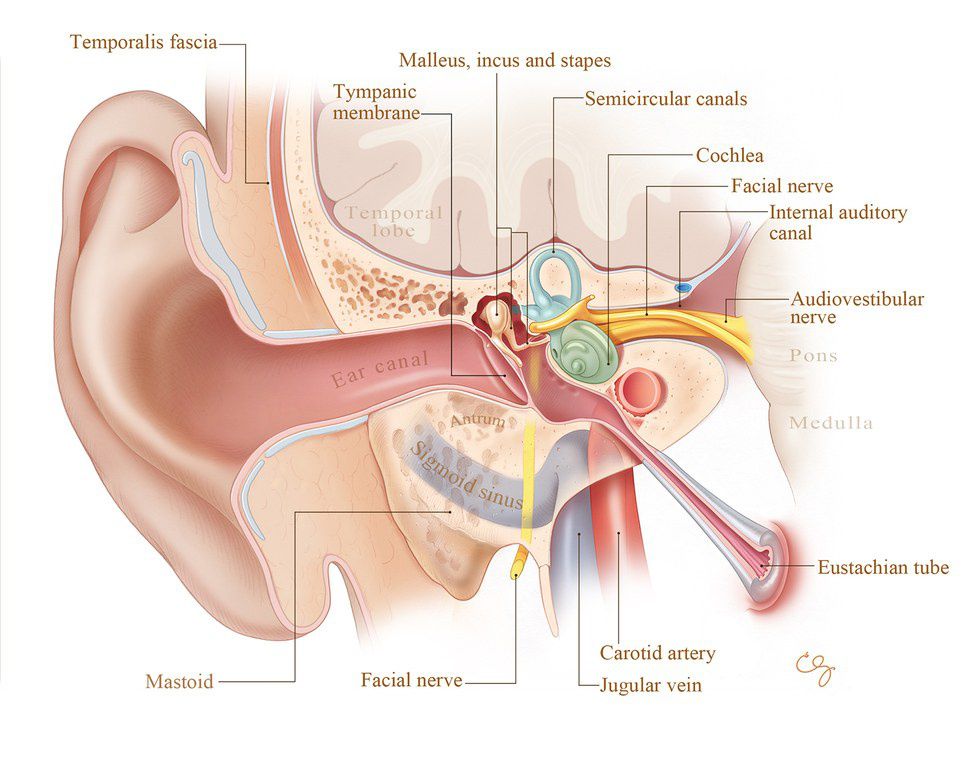I am eternally thankful for the fact that I have been blessed with a working set of ears. Music has helped me through some tough times and out of some dark places. On a happier note (pun intended), it's also given me a hobby, where I sit with my guitar, a YouTube video, and messily move my hands around the fret board, trying as hard as I can to sound exactly like the studio recording, and possibly start a band one day.
(one does not simply refer to one of their previous articles about memes).
But I comically digress.
The experience of war, that complex geopolitical phenomenon that leaves nobody unchanged, no matter how small their involvement in it, is one of the painful realities of the world. There is a saying that war is hell, but for most troops the circles of suffering continue long after they have left the battlefield. Stigma endures at potential employment opportunities. The circumstances change, but you can't take away what's inside their head, the skills they've learned, the things they've seen. They possess an enviable work ethic, and the physique and discipline ingrained into them in training remains a life long asset. Ideal workforce assets, then. But most of the times, transitions are not smooth. My paternal grandfather was in the Indian army - he fought for the British Empire in the last ten years of when they were still ruling India. As a result, he was a hard man to grow up with, but he instilled a sense of discipline, no nonsense, respect and ethics in my dad, things I hope to possess even an ounce of. But that was a long time ago.
Along with technology, war has changed. Intelligent weapons that kill each other, drones, multi million dollar hardware and bullets. As a result, the amount of armor and training and equipment soldiers are required to handle based on their roles (tank gunners, Javelin missile operators) has also increased. Short of an actual working Iron Man suit, the elite personnel of the US military are perhaps the closest we can come to actual superheroes. They may very well be indestructible.
Unfortunately, to be indestructible, one must be destroyed first. And that is one of the slow, lingering consequences of countless wars and painfully long deployments. I am not painting the armed forces in a negative light - that is not and never will be my intention. There are many well adjusted soldiers who have very little difficulty adjusting to civilian life - more power to those honorable men and women. This is for those who cannot. Depression, post traumatic stress disorder, survivor's guilt, adjustment issues, disability, disfigurement, suicidal thoughts - these are well documented within the consciousness of the general public as something returned soldiers face.
Deafness needs to be a topic of similar, if not equal prominence. The ear, as an organ, is comparable to what the feet are in the lower half of the body - critically important and criminally underrated. We all know the ear helps us receive, interpret and respond to auditory inputs. However, it is also important in helping us maintain balance. It is the reason we can walk upright in three dimensional space without even having to think about it. The tympanic membrane is a sheet - the eardrum is indeed named after the percussion instrument. Being in close proximity to gunfire and explosions will undoubtedly take a toll on the ear, and owing to the nature of the structures, damage done is almost irreparable and the ear itself is irreplaceable.
Hearing aids and earplugs do exist, but compared to the advancements the field of prosthetic limbs (artifical limbs) has made, these seem woefully inadequate. On the other hand, silencers for guns and rifles are also available, but the fact of the matter is that a no nonsense, bulletproof plan, is needed to take care of our returning veterans. Mentally, physically, emotionally, spiritually, financially, and all the other intangible ways that exist of making a person feel like they belong somewhere again, after having experiences orders of magnitude different than we can even begin to imagine.
However, the causes of conflict nowadays shift and morph unceasingly. Allegiances are unclear, enemies in the shadows. The one commonality, disturbingly, seems to be the damage and loss on both sides of the fight. There cannot be a world without war - such an assumption is utopian in nature, and is, for this epoch, a glorious fantasy.
But there should be a world full of healing.























 sunrise
StableDiffusion
sunrise
StableDiffusion
 bonfire friends
StableDiffusion
bonfire friends
StableDiffusion
 sadness
StableDiffusion
sadness
StableDiffusion

 purple skies
StableDiffusion
purple skies
StableDiffusion

 true love
StableDiffusion
true love
StableDiffusion
 My Cheerleader
StableDiffusion
My Cheerleader
StableDiffusion
 womans transformation to happiness and love
StableDiffusion
womans transformation to happiness and love
StableDiffusion
 future life together of adventures
StableDiffusion
future life together of adventures
StableDiffusion





















